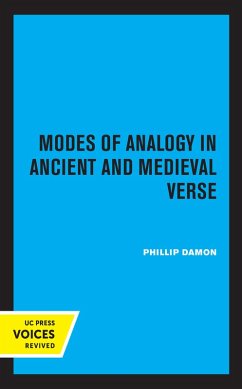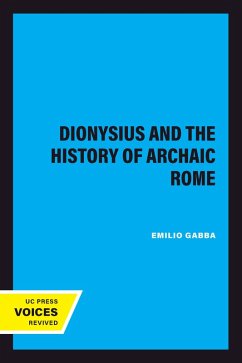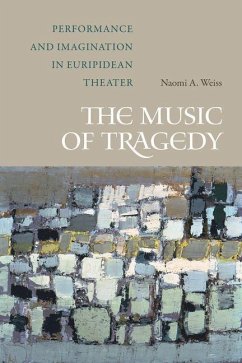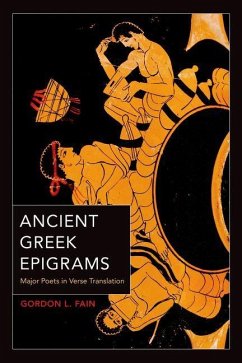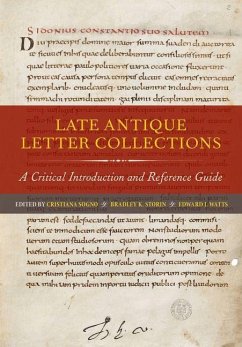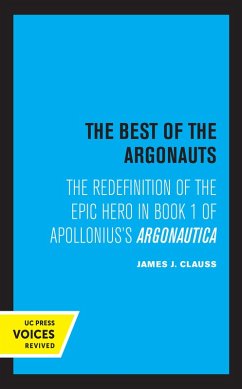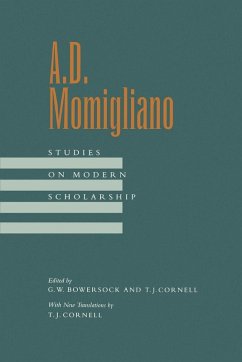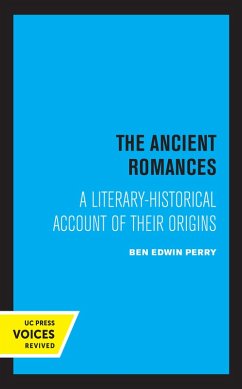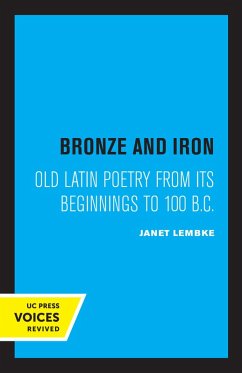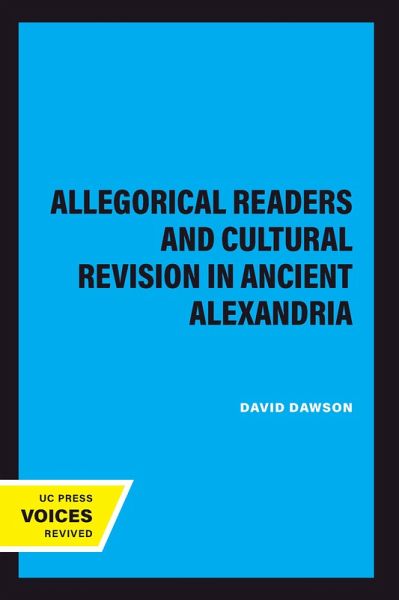
Allegorical Readers and Cultural Revision in Ancient Alexandria (eBook, ePUB)

PAYBACK Punkte
26 °P sammeln!
Allegorical readings of literary or religious texts always begin as counterreadings, starting with denial or negation, challenging the literal sense: "You have read the text this way, but I will read it differently." David Dawson insists that ancient allegory is best understood not simply as a way of reading texts, but as a way of using non-literal readings to reinterpret culture and society. Here he describes how some ancient pagan, Jewish, and Christian interpreters used allegory to endorse, revise, and subvert competing Christian and pagan world views.This reassessment of allegorical readin...
Allegorical readings of literary or religious texts always begin as counterreadings, starting with denial or negation, challenging the literal sense: "You have read the text this way, but I will read it differently." David Dawson insists that ancient allegory is best understood not simply as a way of reading texts, but as a way of using non-literal readings to reinterpret culture and society. Here he describes how some ancient pagan, Jewish, and Christian interpreters used allegory to endorse, revise, and subvert competing Christian and pagan world views.
This reassessment of allegorical reading emphasizes socio-cultural contexts rather than purely formal literary features, opening with an analysis of the pagan use of etymology and allegory in the Hellenistic world and pagan opposition to both techniques. The remainder of the book presents three Hellenistic religious writers who each typify distinctive models of allegorical interpretation: the Jewish exegete Philo, the Christian Gnostic Valentinus, and the Christian Platonist Clement. The study engages issues in the fields of classics, history of Christianity and Hellenistic Judaism, literary criticism and theory, and more broadly, critical theory and cultural criticism.
Allegorical readings of literary or religious texts always begin as counterreadings, starting with denial or negation, challenging the literal sense: "You have read the text this way, but I will read it differently." David Dawson insists that ancient alle
This reassessment of allegorical reading emphasizes socio-cultural contexts rather than purely formal literary features, opening with an analysis of the pagan use of etymology and allegory in the Hellenistic world and pagan opposition to both techniques. The remainder of the book presents three Hellenistic religious writers who each typify distinctive models of allegorical interpretation: the Jewish exegete Philo, the Christian Gnostic Valentinus, and the Christian Platonist Clement. The study engages issues in the fields of classics, history of Christianity and Hellenistic Judaism, literary criticism and theory, and more broadly, critical theory and cultural criticism.
Allegorical readings of literary or religious texts always begin as counterreadings, starting with denial or negation, challenging the literal sense: "You have read the text this way, but I will read it differently." David Dawson insists that ancient alle
Dieser Download kann aus rechtlichen Gründen nur mit Rechnungsadresse in A, D ausgeliefert werden.




